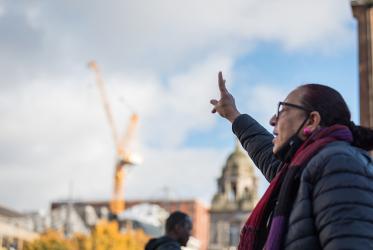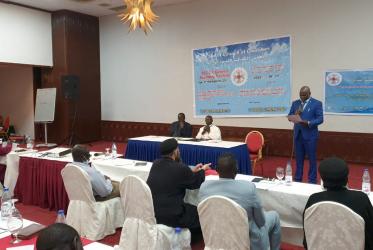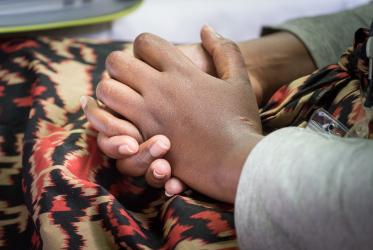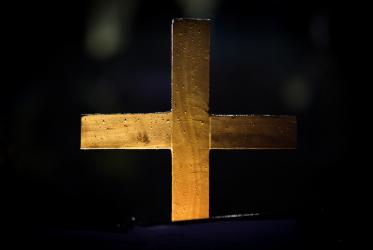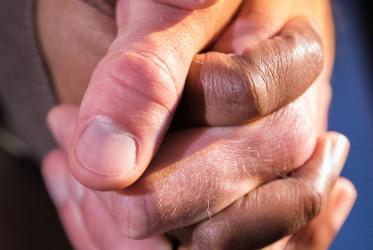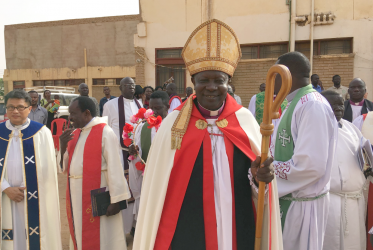Displaying 21 - 40 of 51
WCC expresses grave concern over political situation in Sudan
29 October 2021
WCC shares greetings with Sudan Council of Churches General Assembly
20 September 2021
Sudanese church leaders express hope that new pact will end war
08 October 2020
WCC expresses concern, solidarity with people of Sudan
12 April 2019
#WCC70: Diaconal unity in a long-forgotten crisis
25 October 2018
Sudan declared new Anglican province
31 July 2017
Preventing incitement to violence which could lead to atrocity crimes in Africa
09 - 11 May 2016
Addis Ababa, Ethiopia

